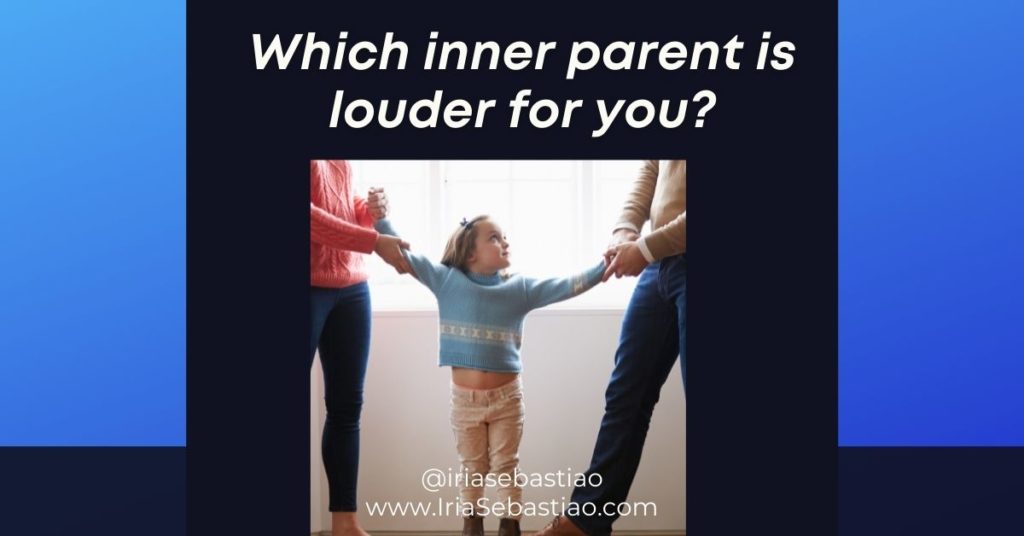At times, we admire people for their actions and accomplishments, but it is just another day for them. And on the other hand, people admire and compliment us for what we have done, but we don’t feel like we did much.
It is funny how we measure significant accomplishments differently. But also, it is interesting our tendency to minimize what we have done and glorify what others have accomplished.
It is good to find inspiration in others, but also it is essential to recognize and celebrate our progress and accomplishments without minimizing them.

Most of us haven’t learned to acknowledge and value our effort. Instead, we focus on the perfect outcomes as if they were not composed of a series of efforts, including:
- The persistence to overcome challenges,
- Learning from mistakes and
- The succession of not-so-good work quality until it becomes good.
When I worked as a child therapist, I had to teach parents how to compliment their children. Sadly, it was either because they didn’t compliment them at all or because they didn’t compliment in a way that would encourage continuous effort.
Instead of complimenting their children’s effort, parents would focus on the outcome (perfect grades, “pretty” art, sports championship, perfectly done chore) without emphasizing the effort that led to the result. Or worse, parents would focus only on what wasn’t good enough. For example, you took an A, but you forgot to organize your room. You cleaned your room, but you didn’t put the dishes away. Why did you take a B instead of an A?

Many children were called “lazy” or “defiant” because they didn’t want to do homework, chores or engage in new or social activities. But, in reality, they were anxious and afraid of failing. They often told me they would not try because they knew they would not be good enough or disappoint their parents. So, they would say to me, “What was the point of trying?”
And, often, when their parents’ attitude changed, when they started focusing and complimenting their child’s effort and what they were doing well, the child’s confidence would increase, making an effort in those “challenging” activities.
As adults, we become those critical parents for ourselves. We minimize our effort and accomplishments. We focus on what is not good enough, and we forget to acknowledge and celebrate the effort. It can keep us stuck with low self-esteem and perpetuate that “not good enough” feeling.
I recently accomplished a task that has been a struggle for months. There were/are many insecurities, self-criticism and striving for perfectionism around it. For this task, I was the “defiant” child who was not trying something because it would not have the perfect result right away. I was the “lazy” child who wanted to effortlessly skip the learning curve and jump to the championship. I was also the critical parent constantly focusing on what was not good enough.
But, this past week, I chose to become the parent who focuses on the effort instead of the result, the parent who tells the child that it is ok to make mistakes as long you keep showing up and trying. This past week, I could get over myself, finally publishing my first video recorded for YouTube.
Of course, my inner critical parent says that it is not good enough and points out all the details that could be better. Even though this inner parent has good points, I will remain stuck and hiding if I focus on this voice only.
So, instead, I am choosing to pay more attention to my inner loving parent. I am choosing to listen to the voice that values the courage to show up and the effort to deliver a helpful message – even if the details are not that great yet.
Thus, I want to invite you to watch my first vídeo for Youtube and align with my loving inner parent by giving it a “like” 👍 – at least for the effort. 😉 The vídeo has a message that, I believe, can be helpful towards the peace we are seeking in our lives and the world. 
Perhaps, you can also be extra encouraging and subscribe to the channel to see future videos with messages that can help bring more lightness into your life.
And, back to you, remember to pay attention to your inner voices—notice which inner parent is talking louder. Then, practice giving more voice to your loving inner parent, the one who sees and values your effort, the one who acknowledges that you are doing the best you can. Be that voice in the world too! It will make a huge difference!
Be kind to yourself!
Big love,
Iria Sebastiao, Spiritual Life Coach & Catalyst for Personal Change
Watch the vídeo here: Finding peace, plus eight tips for more lightness in your life



